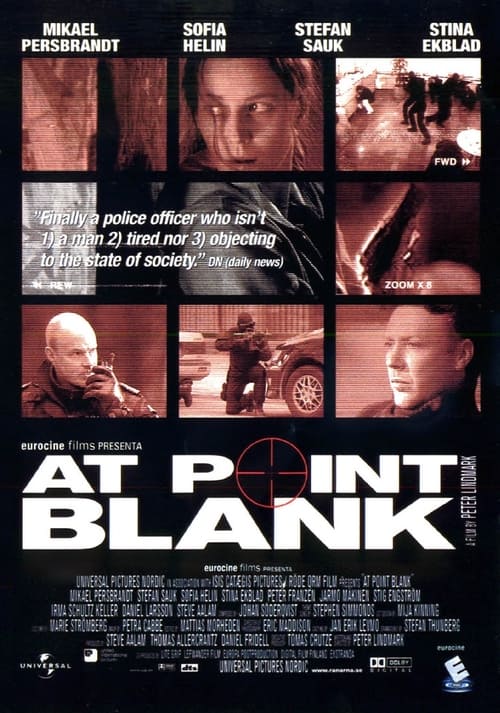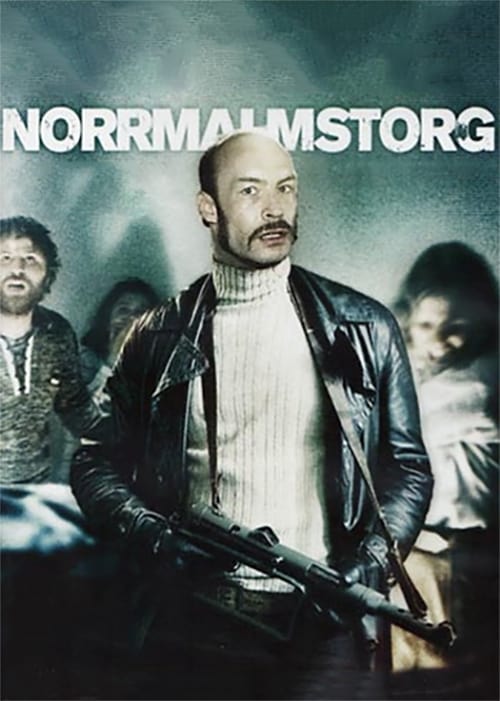
Ask Your Own Question
What is the plot?
More Movies Like This
Browse All Movies →
What is the ending?
In the ending of the movie "Deadline," the protagonist, a writer named John, confronts the reality of his life and the consequences of his choices. He faces the ghosts of his past and ultimately finds a sense of closure. The film concludes with John making a significant decision about his future, leaving behind the turmoil that has haunted him.
As the film approaches its climax, John, played by Chris Klein, is deeply entrenched in his writing process, struggling with the narrative of his latest story. The tension builds as he grapples with his own demons, including the loss of his father and the impact it has had on his life.
In a pivotal scene, John is visited by the spirit of his deceased father, who represents both a source of pain and a catalyst for John's growth. The father's ghost confronts John about his failures and regrets, pushing him to face the truth about his life choices. This confrontation is emotionally charged, filled with raw vulnerability as John expresses his feelings of inadequacy and guilt.
As John continues to write, he becomes increasingly aware of the blurred lines between his reality and the fictional world he is creating. The narrative he constructs begins to mirror his own struggles, leading to a moment of catharsis. He realizes that he must confront his past to move forward, and this realization propels him toward a decision that will change his life.
In the final scenes, John makes a choice to let go of the pain associated with his father's death. He acknowledges the love and lessons imparted by his father, which allows him to find peace. The act of writing becomes a transformative experience for him, symbolizing his acceptance of the past and his readiness to embrace the future.
The film concludes with John stepping out into the world, a sense of hope and renewal evident in his demeanor. He has chosen to leave behind the shadows of his past, signifying a new beginning. The fate of John is one of redemption, as he moves forward with a clearer understanding of himself and his place in the world.
The other characters, such as John's love interest and friends, also experience a sense of resolution. They have supported him throughout his journey, and their relationships are strengthened as John emerges from his struggles. The film ends on a note of optimism, emphasizing the importance of confronting one's past to achieve personal growth and healing.
Is there a post-credit scene?
The movie "Deadline," produced in 2001, does not have a post-credit scene. The film concludes its narrative without any additional scenes or content after the credits roll. The story wraps up with the resolution of the main plot, focusing on the emotional and psychological journey of the characters, particularly the protagonist, who grapples with themes of loss, guilt, and redemption throughout the film. The absence of a post-credit scene aligns with the film's serious tone and thematic closure.
What motivates the main character, a journalist, to investigate the mysterious death in Deadline?
The main character, a journalist named John, is driven by a deep sense of responsibility and a personal connection to the case. He feels compelled to uncover the truth behind the mysterious death of a young woman, which he believes is linked to a larger conspiracy. His determination is fueled by a desire for justice and the need to confront his own past mistakes.
How does the character of John evolve throughout the film as he delves deeper into the investigation?
As John delves deeper into the investigation, he undergoes significant emotional turmoil. Initially, he is portrayed as a cynical and jaded journalist, but as he uncovers layers of deception and personal connections to the victim, he becomes more empathetic and introspective. This journey forces him to confront his own fears and regrets, ultimately leading to a transformation where he seeks redemption.
What role does the character of the victim play in the narrative, and how does her backstory impact the investigation?
The victim, a young woman named Sarah, serves as the catalyst for the entire narrative. Her backstory reveals a troubled life filled with secrets and struggles, which John uncovers piece by piece. Her past not only drives the investigation but also highlights the themes of loss and the impact of unresolved trauma, making her a poignant figure that haunts John's journey.
What obstacles does John face in his investigation, and how do they affect his character development?
John faces numerous obstacles, including resistance from law enforcement, threats from those who want to keep the truth hidden, and his own internal conflicts. These challenges test his resolve and force him to confront his own limitations. Each obstacle serves to deepen his character, pushing him to become more resourceful and determined, ultimately shaping him into a more courageous individual.
How does the relationship between John and his editor influence the direction of the investigation?
The relationship between John and his editor is fraught with tension, as the editor is skeptical of John's obsession with the case. This dynamic creates a push-and-pull effect, where John's passion clashes with the editor's pragmatic approach to journalism. The editor's doubts and eventual support play a crucial role in motivating John to pursue the truth, highlighting the complexities of professional relationships in high-stakes situations.
Is this family friendly?
"Deadline," produced in 2001, is not considered family-friendly due to its mature themes and content. Here are some potentially objectionable or upsetting aspects that may affect children or sensitive viewers:
-
Violence and Threats: The film contains scenes that depict violence and threats, which may be distressing for younger audiences.
-
Death and Grief: The narrative explores themes of death and the emotional turmoil associated with loss, which can be heavy and upsetting.
-
Mental Health Issues: Characters grapple with mental health challenges, including depression and existential crises, which may be difficult for some viewers to process.
-
Intense Emotional Scenes: There are moments of high emotional intensity that could be overwhelming, particularly for sensitive individuals.
-
Mature Language: The dialogue includes strong language that may not be suitable for children.
These elements contribute to a tone that is more appropriate for adult audiences rather than families or younger viewers.














































